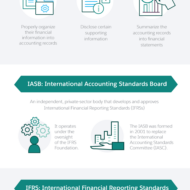Currently Browsing: Project Management
Posted by Managementguru in Business Management, Employee Safety, Human Resource, Operations Management, Productivity, Project Management
on Sep 17th, 2020 | 0 comments

You’re probably not losing any sleep over facility management if your business fits into one small office. But, if you plan on growing your business, your small office will eventually grow into a whole building. This is where facility management comes in. The job of a facility manager is to ensure a well-organized environment in which you, your team, and your whole business can thrive. According to Transparency Market Research, the North American facilities management market will be worth about $340 billion by the end of 2024. So, facility management services are not something you should underestimate. Read on : Optimoroute has come out with a resourceful article on Route Optimization Software that sheds light on creating efficient transport plans using app or software to cut costs, save time, and utilize resources.Why Use Route Optimization Software? The Basics of Facility Management Facility management is a profession that focuses on utilizing a company’s buildings and equipment in a way that offers the best value. Facility maintenance is just one part of facility management. Strategic facility management ensures functionality, productivity, and safety in the built environment. Facility management is also key to ensuring that your company’s buildings and equipment comply with existing legal requirements. If you are wondering if or when you should hire a facility manager, here are some telltale signs: Your Maintenance Costs Are Escalating As your business grows, so will your maintenance costs. But, if these costs start running down your company, you have a problem. Some common money-wasters are likely to blame If you can’t figure out why your servicing and repair costs are increasing each month. These can include unused office space, wasteful stocking of spare parts and inventory, and under-utilisation or abuse of existing equipment. According to a 2013 report published by Wired, the U.S. had added about 2 billion sq. ft. of office space to its existing stock over the previous 30 years. Today’s mobile workforce doesn’t require so much space. The way you manage maintenance personnel and other staffing expenses also has an impact on your bottom line. The costs quickly pile up if you frequently have to call in heating engineers, electricians, plumbers, and other contractors. When you are operating in multiple locations, or have a very large facility, it’s hard to keep track of all maintenance tasks. Many business owners are in the habit of tracking everything manually. This can get messy really quickly. Moreover, if this is something you don’t have experience with, you can’t know whether the maintenance workers are carrying out their tasks properly. This is why facility managers rely on facility management software. Such tools allow them to make sure that every contractor and maintenance employee is doing the work they are being paid for. You Need to Expand Your Facilities to Accommodate Growth Let’s say that your business is expanding and you need additional storage space for your data. To handle the growing needs of your company, you need to build an effective data centre infrastructure. Naturally, this is a huge investment, and you don’t want to bite off more than you can chew. A facility manager can help make sure your new data centre can handle the evolution of your company. Using their experience, they can vet and hire a data centre construction firm. Their job would also be to manage the service contract you have with the firm, help ensure data centre security, and manage periodic upgrades. Even though your facility manager may not be an authority on the subject, they will know how to find and work with people who are. A good facility manager knows how to take care of quality control when engaging...

Posted by Managementguru in Accounting, Business Management, Financial Accounting, How To, Marketing, Project Management, Sales
on Jun 15th, 2019 | 0 comments

Do you remember the first sale that you ever booked or made on your own? It was probably pretty exciting — that feeling of elation and top-of-the-mountain. You suddenly realize that you might understand how this whole business thing works and you might be able to do this. But of course there are practicalities to consider when you make a sale. It can be tempting to recognize revenue right away, but there’s always a risk. What if the sale cancels, for example? What if it costs more to create the product or service than you’ve booked? It just can be a difficult process to learn the ins and outs of recognizing revenue. Standards to Recognize Revenue Fortunately there are standards to use that others have figured out. These standards are a great way for companies to make sure that people understand what they are doing is on the up and up. Non-accountants must be aware of the concept of recognizing revenue from contracts with customers. Because payments are often not a straightforward affair, accountants have to allocate revenue using specific standards set by national and international accounting boards. While this information doesn’t seem important for non-accountants to understand, it is. Knowing when revenue can be recognized in your company’s financials affects everyone, from the salesperson’s commission to the marketing budget next quarter. What are those standards and what are the takeaways from them? This graphic explains it. To understand and accomplish the new revenue recognition standards, businesses should complete the following five steps: 1. Identify the contract with your customers Clearly identify the goods or services provided and describe each party’s right to them 2. Identify your performance obligations Specify exactly what you owe your customers and explain what defines “good performance.” 3. Determine the price of your products or services When doing so, don’t forget to consider promotions and other discounts. 4. Allocate a transaction price to the obligations specified in the contract Align the price of your services with your compnay’s performance obligations 5. Recognize revenue as performance obligations are satisfied Sales people also must understand the difference between booking and revenue. A booking is when the customer makes a commitment via a contract to buy your services or product. Revenue is when the revenue “counts” on the books – When accounting can account for the revenue as being...

Posted by Managementguru in Business Management, Entrepreneurship, How To, Marketing, Project Management, Startups
on Apr 24th, 2019 | 0 comments

Here’s to New Beginnings: Your Essential Guide to Starting a Small Business When you have a great business idea and strive to achieve financial independence, you might be thinking about launching a small business. Every huge corporation started with a small business, so why not? While you can definitely achieve success in the business world, keeping your small business successful for at least 2 to 5 years is a huge work. This game is worth the candle, though. So, if you’re trying to start a small business, here’s your handy guide to help you out: Start your journey with research Perhaps, you’ve already come up with a unique – or any – business idea, but is it going to bring you success? Does your business idea have many competitors? Before you take any step, do your own research. Consider running your idea through a simple validation process that will help you to figure out the future of that idea. First of all, your business idea should offer something – be it a service or a product – that the modern market needs these days. There are many ways to find out if a business idea will be successful, such as focus groups, deep research, and in most cases, trial and error. But before you go through trial and error ask yourself: Does the market need your product/service? Who are the people who will want to use your product/service? What are the companies that offer similar or the same product/service? Will you be able to compete with them? It’s important to ask confidently without any fear or disappointment. Create a business plan Any business idea requires a powerful business plan, which will become your guide during the process of establishment and business growth. There are many types of business plans, so choose the one that will suit your idea. If you’re looking for financial support from a financial institution or an investor, creating a basic business plan is essential. This business plan is usually thorough and long, and contains a set of sections that banks and investors check out when they’re validating a business idea. In case, you’re not looking for any financial support and you’re going to invest in your startup yourself, it may be enough to create a simple and short business plan just to give you the initial steps you should take. You can also come up with a working business plan on a piece of paper and change it as you start working on it. Consider your finances Generally, a startup doesn’t need too many investments, yet you’ll need some money to cover a number of expenses during the first months or even a year before your business will earn a profit. Calculate the one-time startup expenses like property leases, permits and licenses, legal fees, equipment, branding, insurance, inventory, market research, opening events, trademarking, etc. Then, calculate how much money you will need to keep your startup running for a year (your own paycheck, employee paychecks, utilities, rent, advertising, marketing, travel expenses, supplies, etc.) As soon as you find out an approximate amount of money, think about the ways to find them. You can either save money or borrow from family or friends. Many new entrepreneurs also apply for an SBA loan. Filling out an SBA personal financial statement may be tricky, but here’s a guide to help you out. Select a business structure Whether it is a limited liability company (LLC), a partnership, a sole proprietorship, or even a corporation, your next step is to select a business structure. Your business structure will affect a lot of factors, including your liability, business name,...

Posted by Managementguru in Entrepreneurship, Project Management, Startups
on Apr 14th, 2019 | 0 comments

Rolling Up Your Sleeves: 8 Steps to Registering as an Independent Contractor Are you ready to be your own boss? There are many advantages to becoming an independent contractor, some of which we’ll cover today. But it’s also a big responsibility – one that you and you alone must handle. Here are some general steps you can take to make your dreams of striking out on your own as an independent contractor a reality. Learn what an independent contractor is. First, learn more about what being an independent contractor means. To be an independent contractor, you must have multiple clients (companies) annually. You own your business at least in part, work with your own materials, tools, and expertise, and each job you take on is considered ‘temporary’, as you will leave when your task is complete. Pick your business name. Now, pick a name for your business. Make it something other than just your first and last name, as you can get some good marketing in with a clever or memorable name. Get licensed. Next, head down to your local city or county clerk’s office and figure out whether or not you’ll require a license to operate where you live. This is especially important if you work in any type of labor/contractor field. Often, you are required to be licensed in your trade as well. Get insured. Whatever you do, don’t skip this step! Your career as an independent contractor could be over as soon as it begins if you get entangled in a lawsuit with a client. Check out various professional liability insurance companies to find a policy that suits your industry and individual needs. Take care of the accounting end of things. Decide whether or not you’ll hire an accountant. In many cases, this isn’t necessary; many independent contractors get by fine on their own with accounting software. Make estimated tax payments. This can be a little tricky, but do your best to come up with a ballpark figure on what you’ll make in a year. Now, you must make four estimated tax payments throughout the year. Trust us, you do not want to end up owing all at once, or end up attracting the attention of the IRS in any way. Stay motivated. We all lose steam, and we all find ourselves stuck in a rut from time to time. But as an independent contractor, you need to maintain the will to work and consistently formulate ways to draw in new clients. Create a routine and schedule for yourself, even when work is thin. Enjoy the benefits. While it can have its tough moments, being an independent contractor is incredibly freeing. You make your own hours, you dictate what you’ll be paid, and most of all, it’s your chance to do what you love for a living. Appreciate it! Finding the right work-life balance can be difficult, but when you’re an independent contractor, you make the rules. Start off on the right foot by taking care of licensing, insurance, and accounting, and from there, the sky’s the limit....

Posted by Managementguru in Business Management, How To, Marketing, Project Management
on Oct 29th, 2015 | 0 comments

Practical Tips for Event Planning Professionals How to make an event outstanding! It is always a treat to watch grand events coming live. Be it a Soccer League, Oscar awards Ceremony or more of its kind. Watching it in person or on TV creates a feeling of awe in our heart, don’t they? Have you ever for a second thought how these grandeur events were coming alive or about the people who make these things happen? Honestly, “NO” would be the answer. Behind all of these and more, event management professionals work untiringly to create the best experience possible for the guests, the celebrities, the sponsors & stakeholders, and the spectators. I stumbled across this very interesting article from ALIVE – aliveeventsagency.com an Australian based event management company. It highlights how often risk assessment is overlooked and not put under high priority quotient. Read on… Playing It Safe: Why Venue Security is a Top Priority for Event Planners Event management requires a set of professionals working together with complete understanding to co-ordinate a particular event in style and splendor. All the people involved in the team have one notion in common –that is to make the event a grand success. The event manager is like the captain of the crew and he should outline all the requirements of the client to his team with clarity. It is always the responsibility of event managers to perform over and above the expectations of the client to create a goodwill that will go a long way. Event Management has Become Inevitable: Event managers have become part and parcel of any industry – parties, entertainment, finance, government, retail, fashion, sports, and music. Did you know the anchors of some live shows that we dote are all products of event managers? It is a high tension environment and the glitz and glamour we witness is purely the result of the hard work they render in the back stage. Team, Team, Team… Though four or five people may form the core team, you need to do so many outsourcing jobs to complete the task. Say, you are a wedding planner, right from photography, video, food and cocktail to floral decoration, music and guests welcoming- so many things come under your forte. Imagine how many people you might need to successfully make that event happen! It is better to establish contacts with a trusted set of individuals who will never let you down even in a crisis situation. That you will find out from your experience. Creativity is the key Event Management is all about surpassing the expectations of all parties involved in the events. There are three ways to accomplish this: Arrangement of the events (design) The events have to be unique Should suit the taste of the client and his interests. Client’s Co-operation is more important All said and done, the clients have to be clear in what they want – budget, ambience, kind of events etc.,( In South Indian weddings, the girl’s side has a major financial stake in arranging the events, but the boy’s side has a better say over the matters. So it is better to know the taste and preference of the boy’ side before deciding on events. ) An event manager can never create what he imagines without the support of his team. At the same time he has to be at his best – negotiations between clients, suppliers and company, flexibility, quick thinking, lots of initiative and exceptional decision...










